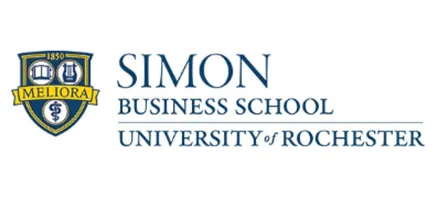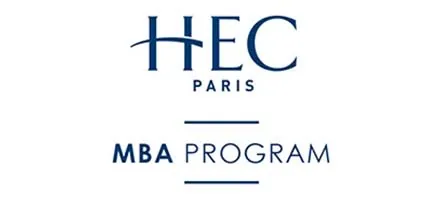
Lee Newman is the new dean of IE Business School in Spain
To Lee Newman, the business school market has been something of a fireworks show. Each business school puts up a loud display of what it stands for, and each one is pretty much like the other. Newman, newly installed as the dean of Spain’s IE Business School, is hoping to make the MBA experience more like a rocket than a bunch of noise, light, and smoke in a dark sky.
His prescription: Bring design thinking to a business school, place a fierce emphasis on innovating every touchpoint in an MBA experience from the recruitment of students to the engagement of alumni, and do it all with a radical focus on careers. In five years, hopes Newman, IE Business School will be known as a school that is more centered around each student’s career goals with a highly curated educational experience to ensure success in their chosen paths. The goal: To develop “a better you, better business and a better world.”
In a wide-ranging interview with Poets&Quants, his first since becoming dean of IE Business School in June, Newman provided a vision for what he would like to achieve and what he intends to focus on early on. “We are thinking hard about the deeper purpose of the business school,” says Newman, an American expatriate who earned his MBA at MIT Sloan, worked for McKinsey & Co. and moved over from the deanship of IE’s School of Human Sciences and Technology. “The brand landscape of business schools is a fireworks show,” he says flatly. “You hear the thump and briefly see the pyrotechnics. It’s social business. You hear another one. It’s tech. Most schools say that they are most things. When I did business school 30 years ago, there were some schools that stood out for some things.
‘IF INCREMENTAL CHANGE IS WHAT YOU ARE LOOKING FOR, I AM NOT THE GUY’
“But most business schools today are trying to do everything. It doesn’t follow the rules of good marketing and communications. The rules are to tell people what you stand for, make sure it’s clear, and repeat it again and again. If you want to add to it, every secondary thing should reinforce your primary message. I want us to be a rocket, with lots of boosters that are important. But not a fireworks show. We want to be the school that is really focused on careers radically and a highly curated educational experience.”
However Newman achieves that goal, it won’t be by tweaking things at a business school. Before taking on the new deanship, Newman met with Diego del Alcázar y Silvela, whose family founded Instituto de Empresa Business School with a group of entrepreneurs in 1973. “I told Diego that if incremental and continuous improvement is what you are looking for, I am not the guy,” says Newman. “He agreed and that is what I enjoy doing. As cliched as the word is in the business school space, we need to innovate. The mandate I have and the imperative I feel is to do new things and innovate in the business school. We have an imperative to innovate not because of where we are but what is coming.”
Peering into the future of business education, IE’s Business School dean anticipates plenty of upheaval. “I see some storms coming,” he says. “The disaggregation of education is coming true. We’ve got players from outside the industry disrupting things like 2U and EdX. We have many disruptive factors from how education will be delivered to the pandemic to a changing job market and those are the early edges of the dark clouds coming.”
AN ECONOMIST CLIPPING LED TO A FACULTY JOB AT IE IN SPAIN
He believes that business schools can better train students for specific careers if schools quickly get them on a track earlier in an MBA program. “You can’t ramp up employability in a business school until the career discovery phase is over. If someone tells me they want to start an MBA to be in marketing, we can start from day one to give them an amazing set of skills for that career. But that is not how a lot of people start business school. We need to create an explicit process of self-discovery to get people down that curve as quickly as possible because only then we can give you the skills to be successful in your career. A radical focus on a person’s career has to be a part of what a business education is.”
To Newman, one decision that is not on the table is whether to double down on specialization or general management. “The bad news for us is that companies want both,” believes Newman. “They want their cake, and they want to eat it and they want milk and cookies afterward. I don’t see general management degrees going away. I see more options to specialize more.”
Newman should know, given his eclectic background. Son of a doctor, he once thought of becoming a neurosurgeon but ended up with an engineering degree from Brown University that led to a variety of roles. He has been a management consultant, having worked as an engagement manager in McKinsey’s Chicago office in the early 1990s, an entrepreneur of two companies in New York from 1996 to 2002, and since then an academic, having earned a PhD in an unusual interdisciplinary pairing of cognitive psychology and computer science from the University of Michigan in 2009.
While in Michigan’s PhD program, he explored the chance of working for IE as a result of a clipping from The Economist magazine. “There was a one-paragraph article about IE Business School launching a university,” recalls Newman. “I put it in my folder and forgot about it. And when I was nearing graduation, I pulled it out, emailed them and asked if anything was open. I ended up having a bunch of Skype interviews. The whole job process was done online. Many of my best friends are in Europe, and I saw this opportunity to go. I just thought it was a good time if I was going to live abroad.”
THE GAP BETWEEN WHAT YOU KNOW STUDENTS NEED AND WHAT THEY THINK THEY NEED
Newman and his wife, Ellen, who had just completed her PhD in psychology at Michigan, packed their bags and headed off to Spain, initially landing in Segovia where IE built a campus at the Convent of Santa Cruz la Real, a historic building declared a national heritage site in 1931. “For two Americans coming mostly from the suburbs of the U.S., it was a little bit of a Disneyland. It was great.”
At first, he taught courses on behavioral judgment and decision making but soon sensed that his MBA students were searching for meaning and purpose. “They needed to not just make daily business decisions but had larger questions about how you work and your lifestyle choices,” says Newman. Those concerns led to his development of a course on positive leadership and behavioral fitness.
“How do we make decisions about our well-being? I migrated into using positive psychology and applying it to leadership. I launched a master’s in positive leadership and also began teaching MBAs, law students, and executive students about positive leadership and how emotions affect the quality of our thinking. It informed my view about the gap between what you know your graduates need to succeed and what they think they need.”
COMBINING BEHAVIORAL SCIENCE AND TECHNOLOGY FOR BUSINESS CAREERS
Within his first year, he was asked if he wanted to be the dean of a school of psychology. Newman turned it down, instead proposing a school of social and behavioral sciences, a role that led to the formation of HST, bringing together science and behavior for business careers. As the founding dean of what is now known as the IE School of Human Sciences & Technology (HST), Lee not only got the school off the ground; he drove its strategy and growth, overseeing the development of 12 master’s programs and five bachelor degrees. It now serves 1,500 students annually from more than 100 countries.
“HST was our plan to expand out of the business school into a broader university,” he says. “We took two schools and in human science and technology and moved them together. If the business school is the center of the bullseye, we started with the business core and asked what happens when you add a deeper understanding of tech, deeper behavioral science, and communication theory. That was the genesis of HST and what it was built on. When we talk to recruiters we see a request for more specialization. Monday morning they want marketing skills if it’s a marketing job. At the same time, they want behavioral skills and soft skills which are not soft.”
He took on the role of an academic entrepreneur. “We basically said we were an anti-disciplinary school,” he adds. “We talked to companies and recruiters and they told us what they needed in the world of analytics and the world of corporate communications, whatever it might be. And then we came back and said let’s design a program that fits those needs, without discipline concerns. The first degree we launched was market research and consumer behavior.”
A BULLET TRAIN VS. A STEAM TRAIN
The program combined ethnographic study with business design and product development. “Recruiters don’t care about the disciplines,” says Newman. “They care about the skills they need. We pulled whatever we needed together. We have a master’s in customer experience. Why did we launch it? I kept reading articles and white papers everywhere on customer experience. It’s design, business measurement, and process, it’s co-design. Is it hard for an academic to get their hands around it? yes. But it’s what companies want.”
At IE, he didn’t face the more typical academic hurdles in getting things done from entrenched faculty or bureaucratic administrators. “If I ever had a complaint about speed, I was told that I had to recognize there are limits to this startup mentality here but you have to recognize we are a bullet train. If you are anywhere else it would be a steam train.”
After launching a half dozen new degree programs as dean of HST, Newman foresees a different focus as dean of the business school. “I think we want to be out there and in front but I see us doing more innovation inside most of the programs we have now,” he says.
Newman sees a future where the average cost of higher education will decline as more disruptive pricing lures more price-sensitive students into the market. But he also believes that students will continue to pay a premium for quality. “Did Ikea put premium Italian furniture designers out of business?,” he asks. “No. I think we in higher education and in business schools have to double down on experience. Experience is what saves us. It is the barrier between the truly deep educational experience you get when you can afford to go to a top school and can take time off versus other formats. It’s an end-to-end process of innovation, starting with an admissions experience and finishing up with an alumni experience. I want every touch point to be great. We will be extremely market sensitive to understand the needs of the market and make sure the programs meet those needs.”
DON’T MISS: LEE NEWMAN TO BECOME NEW DEAN AT IE BUSINESS SCHOOL or A NEW MILESTONE AWAITS IE BUSINESS SCHOOL









